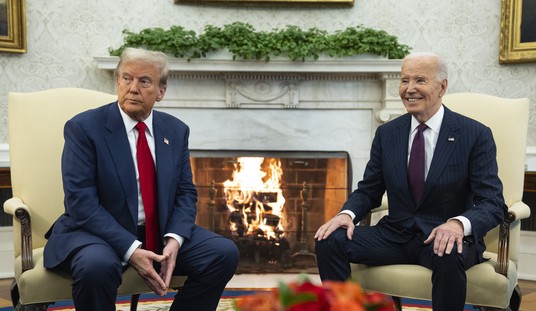The Centers for Disease Control and Prevention (CDC) issued its latest guidelines on mitigating the coronavirus to combat the latest surges in cases and hospitalizations. Friday the agency recommended a universal face mask mandate as a key step in fighting the virus. The CDC warns the U.S. has “entered a phase of high-level transmission.”
The guidance asks that state and local officials “issue policies or directives mandating universal use of face masks in indoor (nonhousehold) settings.” In other words, the recommendation is more government control of its citizens in the form of stricter requirements on face mask use outside of the household. In the household, face masks are to be used if a member of the household tests positive for the coronavirus.
The face mask topic has been a tricky one from the beginning of the pandemic. At the beginning of the pandemic in the United States, we were told by the CDC and other public health experts to not worry about wearing face masks. This advice, as it turned out, was to allow health care professionals to get first dibs on personal protective equipment (PPE) and try to avoid shortages. Shortages of PPE happened anyway because there was no way the U.S. was prepared for such a health event. As manufacturers stepped up and agreed to produce and distribute items like face masks, the CDC decided that yes, face masks are important and everyone should wear one out in public. The part about wearing a mask in your own home is new, though. Originally we were told to isolate a household member who tests positive for the virus, as in put that person in a room away from the other household members.
Universal use of face masks. Consistent and correct use of face masks is a public health strategy critical to reducing respiratory transmission of SARS-CoV-2, particularly in light of estimates that approximately one half of new infections are transmitted by persons who have no symptoms (2,3). Compelling evidence now supports the benefits of cloth face masks for both source control (to protect others) and, to a lesser extent, protection of the wearer.† To preserve the supply of N95 respirators for health care workers and other medical first responders, CDC recommends nonvalved, multilayer cloth masks or nonmedical disposable masks for community use.§ Face mask use is most important in indoor spaces and outdoors when physical distance of ≥6 feet cannot be maintained. Within households, face masks should be used when a member of the household is infected or has had recent potential COVID-19 exposure (e.g., known close contact or potential exposure related to occupation, crowded public settings, travel, or nonhousehold members in your house). A community-level plan for distribution of face masks to specific populations, such as those who might experience barriers to access, should be developed
It seems that there really isn’t much more the CDC can ask of the general public. Every part of the updated guidance is already in place, the CDC wants to increase the severity of the mandates or restrictions since we are now in a second (or third?) wave of the coronavirus pandemic. The rest of the recommendations are: physical distancing, avoiding nonessential indoor spaces, increasing testing, prompt quarantine of exposed persons, safeguarding those at increased risk for severe illness or death, protecting essential workers, postponing travel, enhancing ventilation and hand hygiene, and achieving widespread COVID-19 vaccination coverage. We’ve heard it all before, right?
As might have been expected, Christmas holiday and New Year’s travel is not recommended. Just like with Thanksgiving, everyone is advised to stay at home and just celebrate with those in your household. Health care professionals worry that the virus will be spread from community to community by those traveling to visit family and friends. In the CDC report, there are recommendations for people who do decide to go ahead and travel despite the warnings.
Postponing travel. Travel increases the likelihood of SARS-CoV-2 exposure and infection and could translocate infection between communities. Postponing travel is the best way to reduce this risk.¶¶¶¶¶¶ Any traveler who is symptomatic, has had close contact with a person with COVID-19 and has not met criteria for release from quarantine, or has a positive or pending SARS-CoV-2 test result should not travel.******* For those contemplating international travel, CDC recommends getting tested with a viral test for SARS-CoV-2 1–3 days before departure and getting retested 3–5 days after arrival.††††††† Domestic travelers should also consider testing. Testing does not eliminate all risk and should be combined with other recommended public health strategies. Both domestic and international travelers should stay home or reduce nonessential activities before travel, and for 7 days after travel if tested, even if test results are negative. If not tested, this period should be extended to 10 days. Travelers should be diligent about mask wearing, physical distancing, hand hygiene, and symptom monitoring. For 14 days after arrival, travelers should avoid close contact with persons at higher risk for severe COVID-19–associated outcomes and wear masks in household spaces shared with those who did not travel.
The experts still say indoor dining establishments and bars should be closed. That varies from state to state, though, as governors make decisions for their states according to the severity of the virus. For example, Governor Abbott in Texas stands by his pledge to not shut down the state again but to concentrate on hot spots as they arise. In California, Governor Newsom is taking a different approach and shutting down the state as determined by outbreaks in regions. Individual cities, like Los Angeles, have implemented their versions of lockdowns.
The virus continues to flare up despite the mitigation measures taken over the last nine months. By and large, Americans are doing as they are asked to protect themselves and their friends and loved ones. Fortunately, vaccines will soon be available to help in the efforts to stop the spread of the virus.








Join the conversation as a VIP Member